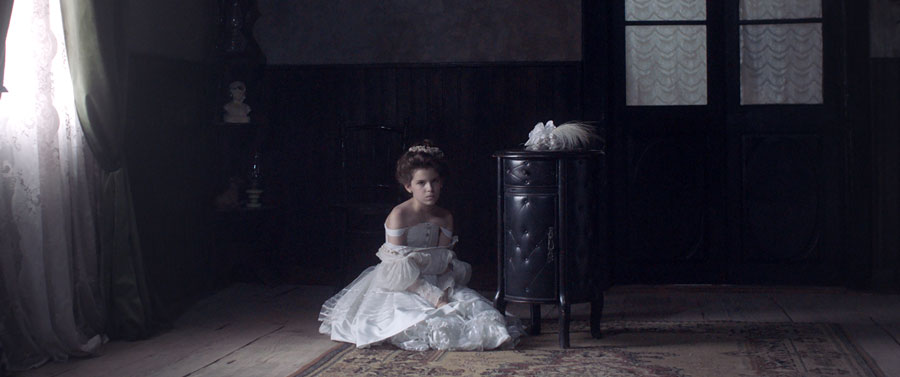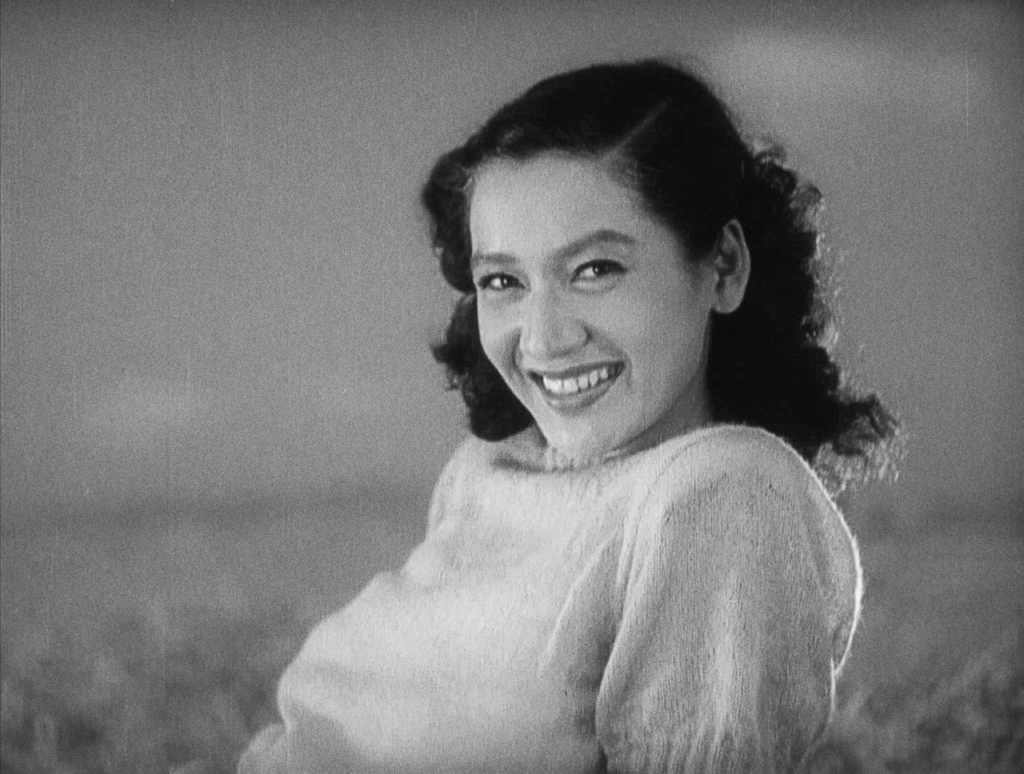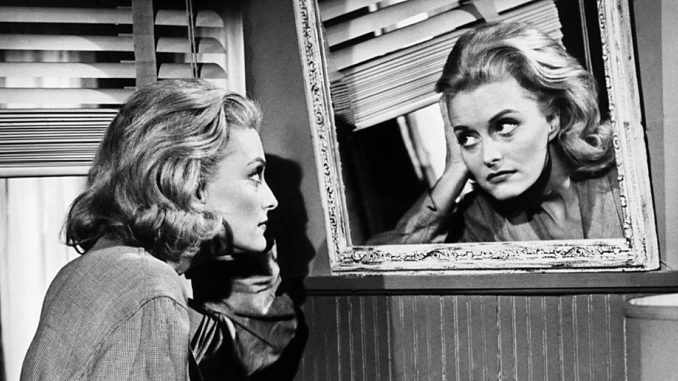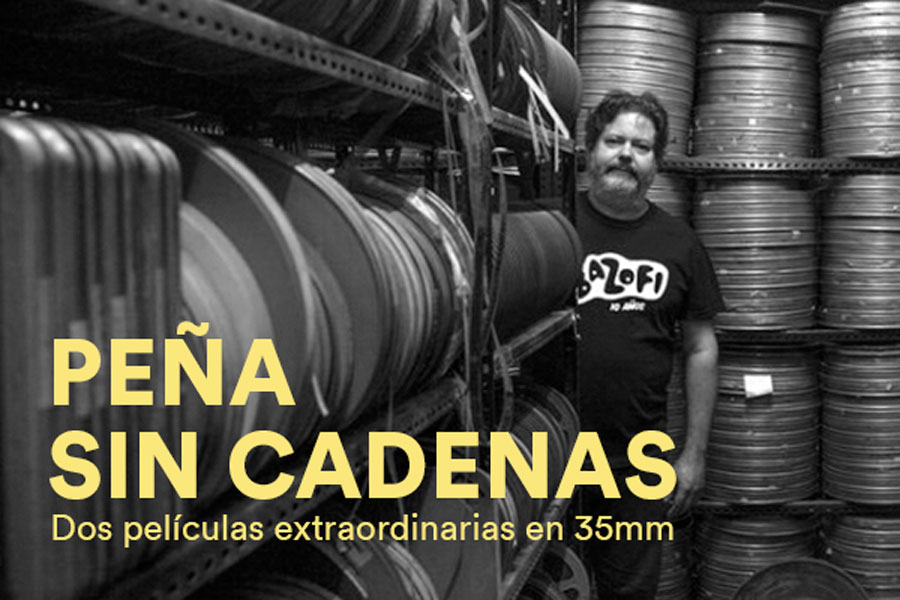
Blanco en blanco
White on white
España, Chile, Francia, 2019
Dirección: Théo Court
Guion / Script: Théo Court, Samuel M. Delgado, Laure Desmazières.
Producción / Production: José Alayón, Giancarlo Nasi, Eva Chillón.
Fotografía / Cinematography: José Alayón, Mauro Herce.
Edición / Film editing: Manuel Muñoz Rivas.
Intérpretes / Cast: Alfredo Castro, Lars Rudolph, Lola Rubio.
Duración: 100 minutos
En el preludio del siglo XX, Pedro llega a un territorio hostil y violento para fotografiar el matrimonio de un poderoso terrateniente. La futura esposa, apenas una niña, se convierte en su obsesión. Tratando de capturar su belleza, traiciona al tirano que domina el territorio. Pero es descubierto.
La Tierra del Fuego, el retrato de un matrimonio poderoso, un patrón al que siempre se le menciona pero nunca aparece, un fotógrafo siniestro (inevitable, tratándose de Alfredo Castro), un amor prohibido, una obsesión perversa, y como trasfondo, el genocidio del pueblo indígena chileno. El director hispano-chileno Théo Court nos trae un western decimonónico y austero, que es también relato de terror con tintes góticos, drama beckettiano, denuncia histórica… y un tratado de amor hacia la fotografía. Y es que difícilmente observaremos un trabajo de fotografía más detallista y riguroso, tanto a la hora de experimentar con la luz natural en los interiores, como a la hora de encuadrar sus sublimes exteriores. De hecho, el film insinúa una sutil reflexión acerca del uso de la fotografía, de su belleza artística y estética como herramienta de manipulación para camuflar los actos más deleznables. Una película sobre el arte en su estado más puro destinado a su función más mezquina. En efecto, un blanco que en el fondo es negro. Obtuvo el premio al mejor director y el premio FIPRESCI de la crítica internacional en la sección Horizontes del Festival de Venecia.
In the prelude of the 20th century, Pedro arrives at a hostile and violent territory to immortalize the wedding of a powerful landowner. The bride to be, just a child, becomes his obsession. Trying to capture her beauty, he betrays the tyrant that rules over the land. But the truth comes out.
Tierra del Fuego, the portrait of a powerful marriage, a boss everyone talks about but that is nowhere to be seen, a sinister photographer (to be expected when it comes to Alfredo Castro), a forbidden love, a perverse obsession and, as backdrop, the genocide of the Chilean indigenous people. Spanish-Chilean director Théo Court gives us a stark 19th century western, which is also a horror story with gothic touches, Beckettian drama, historical denunciation… and a love treaty to cinematography. The truth is, we will hardly see a more detailed and thorough work of cinematography, both when it comes to experimenting with natural light indoors and framing its sublime exteriors. In fact, the film suggests a subtle reflection on the use of photography, its artistic and aesthetic beauty as a tool of manipulation to hide the most despicable acts. A film about art in its purest form used for its pettiest purpose. In truth, a white that is ultimately black. The film received the Best Director award and the FIPRESCI prize from international critics in the Orizzonti section of the Venice Festival.
Théo Court
Sant Antoni, España, 1980 / Sant Antoni, Spain, 1980
Estudia fotografía en Madrid y se gradúa en dirección en la Escuela de Cine de San Antonio de Los Baños, Cuba. Su primer largometraje Ocaso (2010), se estrena en el Festival de Cine de Rotterdam. En Blanco en blanco , su segundo largometraje, vuelve a su amor por la fotografía. La película recibió el León a la mejor dirección y el FIPRESCI, en el Festival de Cine de Venecia, sección Horizontes.
He studied Photography in Madrid and graduated in Directing from the Escuela de Cine de San Antonio de Los Baños, Cuba. His first feature, Ocaso (2010), premiered at the Rotterdam Film Festival. In White on White , his second feature, he returns to his love of photography. The film received the Golden Lion for Best Director and the FIPRESCI prize in the Orizzonti section of the Venice Festival.




